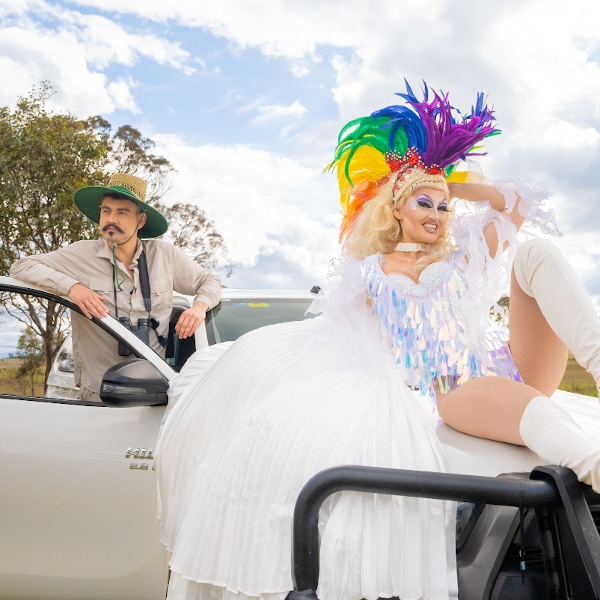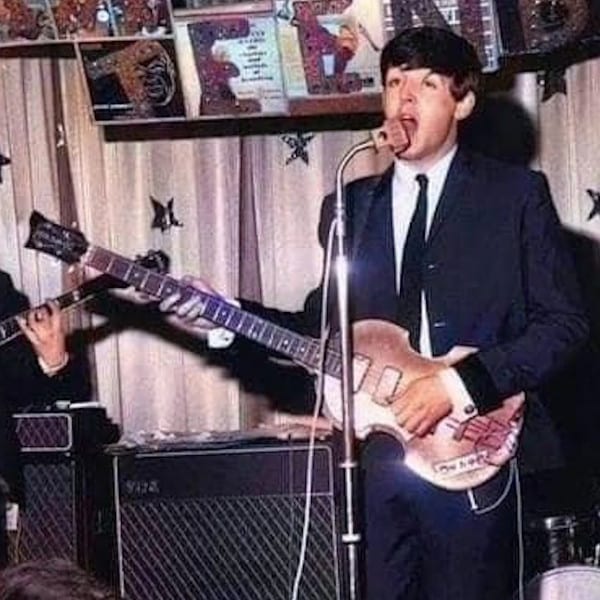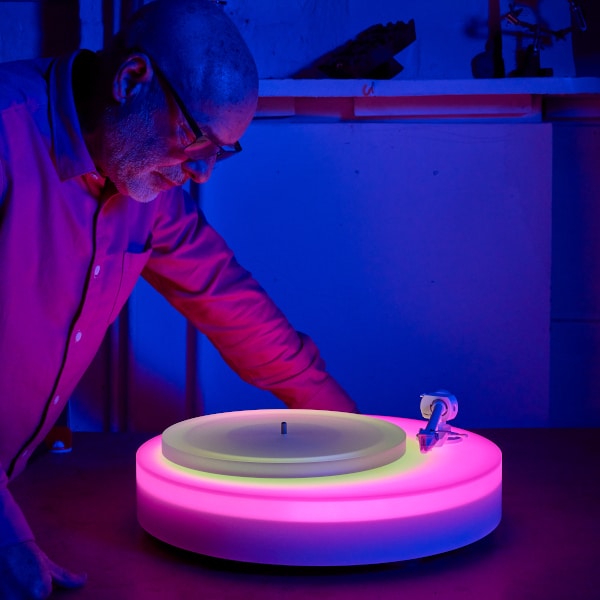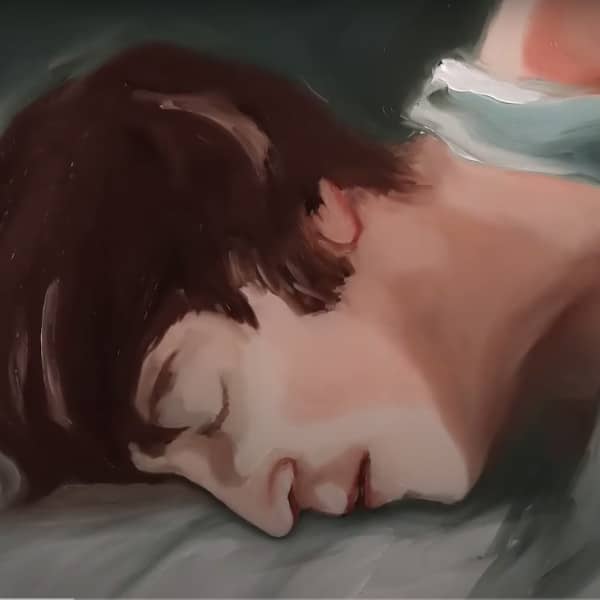View this post on Instagram
On Thanksgiving Day 2021, an eerily beautiful blend of symphonic instruments filled The Cathedral of St. John the Evangelist in Milwaukee, Wisconsin, for over 17 minutes. Titled Voiceless Mass, the composition is not your standard liturgical piece. Instead of an ensemble choir, there is silence, representing the Indigenous voices long silenced by the Catholic church. Diné composer Raven Chacon was awarded the Pulitzer Prize for Music for this piece in 2022, becoming the first Indigenous composer to win the prestigious award.
“My impulse is to turn down any Thanksgiving invitation, not because I’m anti-Thanksgiving but because that’s the only time we get asked to do stuff,” says Chacon. The composer eventually reconsidered the commissioned project, seeing it as a unique opportunity to use the grand cathedral and its Nichols & Simpson organ to make a statement about the Catholic church. Pulitzer describes Chacon’s piece as a “mesmerizing, original work for organ and ensemble that evokes the weight of history in a church setting, a concentrated and powerful musical expression with a haunting visceral impact.”
“This work considers the spaces in which we gather, the history of access of these spaces, and the land upon which these buildings sit,” says Chacon. “Though ‘mass’ is referenced in the title, the piece contains no audible singing voices, instead using the openness of the large space to intone the constricted intervals of the wind and string instruments. In exploiting the architecture of the cathedral, Voiceless Mass considers the futility of giving voice to the voiceless, when ceding space is never an option for those in power.”
For Chacon, the work also represents the idea of hózhǫ́, a central concept of Navajo life. “That idea of hózhǫ́ means maybe things lining up with other things,” Chacon describes. “Maybe it's ourselves and our position here in the universe…and realizing that we are in a timeline of other occurrences that happen. And, for me, that's what music is. It is when you hear something line up with something else, and you want to hear that again.”
Throughout Chacon’s body of work, he has placed emphasis on the meaning of sound and connections. For example, in the video installation of his piece Three Songs, three Indigenous women singing of the horrors brought to their tribes in their native languages while hitting the snare drum, a symbol of the U.S. army. They stand in places where their tribes were violently displaced. Other works of Chacon’s explore the offbeat versatility of instruments and other unconventional noisemakers, from guitars to guns to foghorns and everything in between. American Ledger no. 1 deconstructs the savage foundation of the United States, using percussive instruments, coins, an ax and wood, a police whistle, and a match.
“They're all sounds. But they all have other meanings, of course,” Chacon explains. “You wonder, what is on those ships? What are those ships bringing? Where are those ships from? How long are they going to stay? Same with the guns. Who's holding the guns? Why are they firing? Where are they firing these weapons? Are they weapons or are they tools? That's the hope, is that somebody hears something inside of that, whether that is a story or an emotion.”
These experimental pieces are composed using a mix of traditional notation as well as Chacon’s own graphics, creating wonderfully explorative works beginning from conception to performance. Chacon’s pictorial compositions have found their way into museums, like the prestiguous Whitney Museum of American Art. When performing, they are often required to be printed out on billboards or flags, drawing attention upwards and truly displaying the grandiosity of Chacon’s musical forms.
“To be recognized with the Pulitzer is a complete honor,” says Chacon. “It was not something I was expecting when I wrote that work. I’m definitely more busy than I’ve ever been in my life, but I’m happy and excited to see what’s gonna come next.” Most recently, the composer and his work has been featured by PBS. Chacon has also found his way onto ARTnews’ Defining Artworks of 2022 list and has been able to perform Voiceless Mass at several other venues in North America. As for future plans, he says he hopes to write a piece for a full orchestra.
There’s no doubt that the accomplished musician will continue inventing new ways to utilize sound. Chacon shares, “I think we go into musical situations wanting to be uplifted, no matter what that music is. But if something else can happen, I mean, if the piece can relay history, a history that's not spoken enough, then that surely is a beautiful thing. And so a composer should try to find all the tactics of being able to let that be expressed.”
Diné composer Raven Chacon was awarded the Pulitzer Prize for Music for his piece Voiceless Mass in 2022, becoming the first Indigenous composer to win the prestigious award.
View this post on Instagram
Voiceless Mass is not your standard liturgical piece. Instead of an ensemble choir, there is silence, representing the Indigenous voices long silenced by the Catholic church.
The piece premiered at The Cathedral of St. John the Evangelist in Milwaukee, Wisconsin, on Thanksgiving Day 2022, something Chacon normally wouldn't agree to.
View this post on Instagram
“My impulse is to turn down any Thanksgiving invitation, not because I’m anti-Thanksgiving but because that’s the only time we get asked to do stuff,” says Chacon.
The composer eventually reconsidered the commissioned project, seeing it as a unique opportunity to use the grand cathedral and its Nichols & Simpson organ to make a statement about the Catholic church.
View this post on Instagram
Pulitzer describes Chacon’s piece as a “mesmerizing, original work for organ and ensemble that evokes the weight of history in a church setting, a concentrated and powerful musical expression with a haunting visceral impact.”
View this post on Instagram
“To be recognized with the Pulitzer is a complete honor,” says Chacon. “It was not something I was expecting when I wrote that work. I’m definitely more busy than I’ve ever been in my life, but I’m happy and excited to see what’s gonna come next.”
View this post on Instagram
Most recently, the composer and his work has been featured by PBS and other publications. He has also been able to perform Voiceless Mass at several other venues in North America.
View this post on Instagram
“I think we go into musical situations wanting to be uplifted, no matter what that music is. But if something else can happen, I mean, if the piece can relay history, a history that's not spoken enough, then that surely is a beautiful thing. And so a composer should try to find all the tactics of being able to let that be expressed.”
View this post on Instagram
Raven Chacon: Website | Instagram | Twitter
h/t: [PBS]
Related Articles:
Interactive Map Shows You Which Indigenous Lands You Are On
Nicole Aunapu Mann Makes History as the First Native American Woman in Space
This Chef Is Decolonizing the Kitchen by Only Using Ingredients Native to North America
Trailblazing Native American Ballerinas Known as the “Five Moons” Will Be Featured on the $1 Coin






















































































